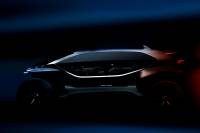Products You May Like
Audi and startup Nunam are using e-tron battery modules to build the ultimate electric rickshaws.
What do you do with an electric vehicle’s batteries once the life of the car is up? You can recycle them for use in a new car. Or you can do what Audi has done and put the second-life cells into another form of sustainable transportation: an e-tron rickshaw, the first-ever Audi tuk-tuk.
Bringing the Classic Rickshaw Into the 21st Century

Self-powered rickshaws have long been a staple in countries where roads are far too crowded for cars and where the average person can’t afford their own vehicle anyway.
Moving people, commerce, and recreation, they’re usually powered by very old-tech gas or diesel engines that can put out more smoke than they do power. The high levels of pollution they leave are why countries like India are pushing hard to move to electric rickshaws to replace fossil fuels.
India has millions of e-rickshaws on its roads already. But the vehicles — called tuk-tuks in many countries — aren’t as green or as good as they could be. Most of them use lead-acid batteries. The same batteries used in your gas-powered car, in this application they can have a short life. They also can’t store much power and are extremely harmful to the environment if they aren’t properly recycled.
A startup called Nunam is working with Audi to give e-rickshaws more advanced EV technology.
Why This Instead of Recycling Cells?

Nunam cofounder Prodip Chatterjee talks about the potential for second-life EV batteries:
[EV] batteries are designed to last the life of the car. But even after their initial use in a vehicle, they still have a lot of their power. For vehicles with lower range and power requirements, as well as lower overall weight, they are extremely promising. In our second-life project, we reuse batteries from electric cars in electric vehicles; you might call it electric mobility “lite.” In this way, we’re trying to find out how much power the batteries can still provide in this demanding use case.
Nunam will use battery modules that are taken directly from Audi e-tron test vehicles. The test vehicles are at their end of useful life, so the batteries would normally be recycled into brand-new cells using an energy-intensive process. Nunam’s goal is to find second and even third uses for the battery cells. It says this life extension is a more efficient use of resources.
Green Power Charging Solutions Part of Project

Nunam will bring three of the e-tron-powered electric rickshaws to India. It will also handle bringing them to end-users. Another goal of the pilot project is to help make it easier for women in the country to bring their goods to market for sale, boosting both their physical and economic mobility.
Because much of India’s power grid uses coal, Nunam will also be supplying solar charging. The solar panels will charge another e-tron battery during the day and pass that power to the e-rickshaws at night.
Nunam will monitor the batteries to get an idea of just how much second-life they can offer. Even after the Audi tuk-tuk, the batteries won’t be dead yet. Chatterjee says the cells might then end up in applications like providing LED lighting for a home. “We want to get everything possible out of each battery before recycling,” he said.
The three e-rickshaws headed to India will be more traditional, but Audi and Nunam are making one to show off in Berlin — with an Audi e-tron-style wrap to make sure you know Audi is footing the costs. Trainees and technicians from all over Audi joined in the process of electrifying the rickshaw.
Visitors to the Greentech Festival in Berlin will be able to take the e-tron tuk-tuk for a test drive starting later this month.

